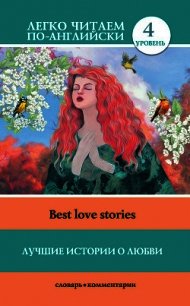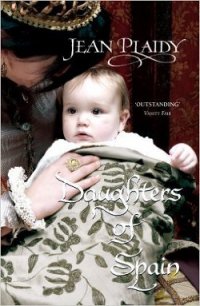Лучшие любовные истории / The Best Love Stories - Гарди Томас (читать книги онлайн .txt) 📗
“It is Dr. Rappaccini!” whispered the professor when the stranger had passed. “Has he ever seen your face before?”
“Not that I know,” answered Giovanni, starting at the name.
“He HAS seen you! he must have seen you! [16]” said Baglioni. “For some purpose or other, this man of science is making a study of you. I know that look of his! It is the same as he bends over a bird, a mouse, or a butterfly, which, in some experiment, he has killed by the perfume of a flower; a look as deep as Nature itself, but without Nature’s warmth of love. Signor Giovanni, you are the subject of one of Rappaccini’s experiments!”
“Will you make a fool of me?” cried Giovanni, passionately.
“I tell you, my poor Giovanni, that Rappaccini has a scientific interest in you. You have fallen into terrible hands! And the Signora Beatrice, – what part does she act in this mystery?”
But Guasconti, finding Baglioni intolerable, broke away, and was gone before the professor could again seize his arm. He looked after the young man and shook his head.
“This must not be,” said Baglioni to himself. “He is the son of my old friend, and must not suffer from any harm from which the medical science can preserve him. Besides, why should Rappaccini take the boy out of my own hands, as I may say, and use him for his experiments. This daughter of his! It shall be looked to! [17]”
Giovanni, after a short walk, found himself at the door of his lodgings. As he crossed the threshold he was met by old Lisabetta, who smiled, and was evidently eager to attract his attention.
“Signor! signor!” whispered she. “Listen, signor! There is a private entrance into the garden!”
“What do you say?” exclaimed Giovanni, turning quickly about. “A private entrance into Dr. Rappaccini’s garden?”
“Hush! hush! not so loud!” whispered Lisabetta, putting her hand over his mouth. “Yes; into the doctor’s garden, where you may see all his fine plants. Many young men in Padua would give gold to be admitted among those flowers.”
Giovanni put a piece of gold into her hand.
“Show me the way,” said he.
His conversation with Baglioni made him think that this might be connected with the intrigue, in which Dr. Rappaccini was involving him. But such a suspicion, though it disturbed Giovanni, it did not stop him. The instant that he was aware of the possibility of approaching Beatrice, it seemed necessary to do so. It did not matter whether she were angel or demon; he was within her sphere; and yet, strange to say, there came across him a sudden doubt whether this intense interest was really so deep and positive; whether it was not the fantasy of a young man.
He paused, hesitated, but again went on. His guide led him to a door, through which, as it was opened, he saw leaves, and sunshine glimmering among them. Giovanni stepped and stood beneath his own window in Dr. Rappaccini’s garden.
He looked around the garden to discover if Beatrice or her father were present, and, seeing that he was alone, began a critical observation of the plants.
The look of them dissatisfied him; their gorgeousness seemed fierce, passionate, and even unnatural. Several also might shock one by an artificial appearance indicating that there had been a mixture of various vegetable species, that the production was no longer of God’s making, but of man’s fancy. They were probably the result of experiment. Giovanni recognized two or three plants that he knew to be poisonous. While busy with these thoughts he heard the rustling of a silk dress and, turning, saw Beatrice emerging from beneath the portal.
She came along the path and met him near the broken fountain. There was surprise in her face, but also a simple and kind expression of pleasure.
“You are a connoisseur in flowers, signor,” said Beatrice, with a smile, meaning the bouquet which he had thrown her from the window. “It is no marvel, therefore, if you have come to take a nearer view of my father’s rare collection. If he were here, he could tell you many strange and interesting facts as to the nature and habits of these shrubs; for he has spent a lifetime in such studies, and this garden is his world.”
“And yourself, lady,” observed Giovanni, “they say, – you are skilled in growing plants with these rich blossoms and these perfumes. If you were my instructress, I should be a better pupil than if taught by Signor Rappaccini himself.”
“Do they say so?” asked Beatrice, with a pleasant laugh. “Do people say that I am skilled in my father’s science of plants? No; though I have grown up among these flowers, I know no more of them than their color and perfume. Signor, do not believe these stories about my science.”
“And must I believe all that I have seen with my own eyes?” asked Giovanni, while the recollection of former scenes made him shrink.
“Forget what you may have fancied about me. But the words of Beatrice Rappaccini’s lips are true. You may believe them.”
While she spoke there was a fragrance in the atmosphere around her, rich and delightful. Could it be Beatrice’s breath which had the odor of the flowers? Giovanni felt faint for an instant.
Beatrice asked Giovanni about his distant home, his friends, his mother, and his sisters. He was surprised that he was walking side by side with the girl, whom he had idealized in such terror, in whom he had witnessed such dreadful abilities, – that he was talking with Beatrice like a brother, and found her so human and so womanly.
They came to the shattered fountain, beside which grew the magnificent shrub, with its purple blossoms. There was a fragrance around it which Giovanni recognized as identical with that of to Beatrice’s breath, but more powerful. As her eyes fell upon it, Giovanni saw her press her hand to her bosom.
“For the first time in my life,” murmured she, addressing the shrub, “I had forgotten you.”
“I remember, signora,” said Giovanni, “that you once promised to reward me with one of these living treasures for the bouquet which I threw to your feet. Let me now pluck it to remember this interview.”
He made a step towards the shrub; but Beatrice rushed forward, with a shriek that went through his heart like a dagger. She caught his hand and drew it back.
“Do not touch it!” exclaimed she, in a voice of agony. “It is fatal!”
Then, she fled from him and disappeared beneath the portal. As Giovanni followed her with his eyes, he saw Dr. Rappaccini, who had been watching the scene, he did not know how long, within the shadow of the entrance.
No sooner was Guasconti alone in his room than [18] the image of Beatrice came back to his mind. She was human, gentle and womanly; she was capable of the heroism of love. Her frightful abilities were now either forgotten, or, even made her more unique. What had looked ugly was now beautiful; or it hid itself among other half ideas at the back of his mind. [19] Thus did he spend the night. Up rose the sun, and the young man woke up with pain in his hand – in his right hand – the very hand which Beatrice had taken in her own when he was about to pluck one of the purple flowers. On the back of that hand there was now a purple print like that of four small fingers, and the print of a thumb upon his wrist.
Oh, how stubbornly does love hold its faith until the moment comes when it cannot do so any more! Giovanni wrapped a handkerchief about his hand and wondered what insect had stung him, and soon forgot his pain thinking of Beatrice.
After the first interview, there was a second. A third; a fourth; and a meeting with Beatrice in the garden was no longer an incident in Giovanni’s daily life, but the space in which he lived. Nor was it otherwise [20] with the daughter of Rappaccini. She waited for the young man’s appearance. If, by any chance, he failed to come at the appointed moment, she stood beneath the window and sent up her rich voice: “Giovanni! Giovanni! Come down!” And down he went into that Eden of poisonous flowers.



